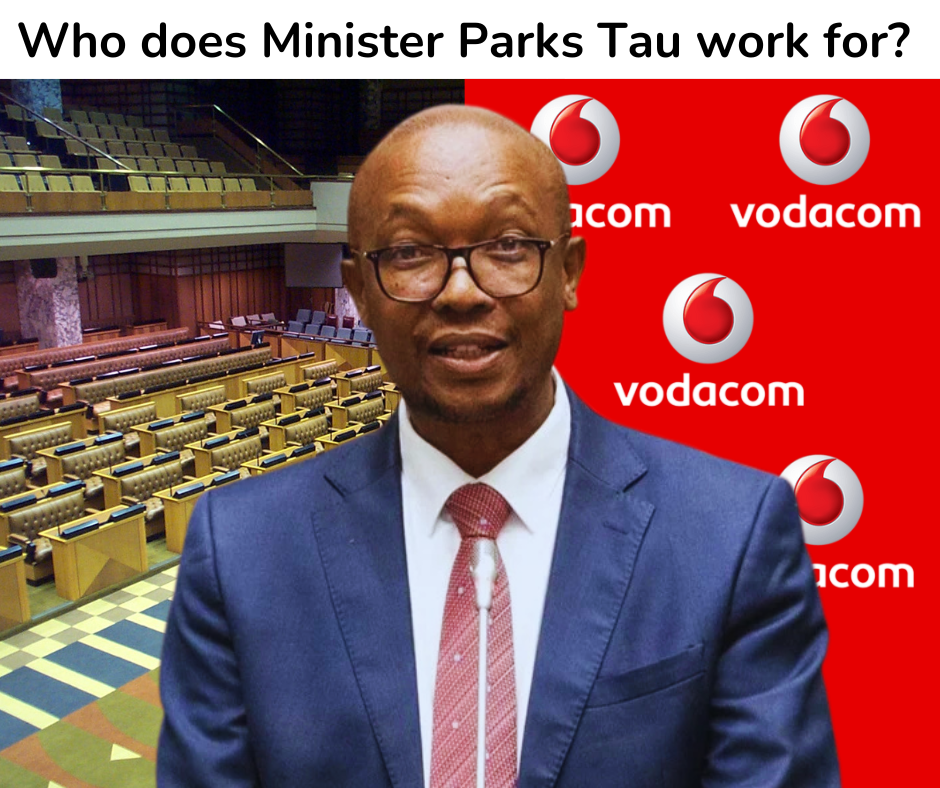
[PRESS RELEASE] amandla.mobi strongly condemns Minister Parks Tau for siding with business at the expense of consumers
South Africa’s Minister of Trade, Industry and Competition (DTIC), Parks Tau, has filed a notice to appeal the Competition Tribunal’s prohibition blocking Vodacom’s purchase of a stake in Remgro’s fibre businesses – Vumatel and Dark Fibre Africa (DFA). Community advocacy organisation, amandla.mobi strongly condemns the move.
“It is our view that this unprecedented move will result in the relationship between telecom giants and the government transforming into something we have not seen before. What is emerging since is a country in which the interests of select telecom giants transcend consumer welfare.
For years, mobile networks, including Vodacom, skewed data prices to disadvantage low-income consumers. This greed helped fortify inequality in South Africa by making it harder for low-income consumers to access the information, education, jobs and income opportunities that internet access could help unlock. While Vodacom has claimed that the merger will help them “connect the unconnected”, we believe that its impact will harm consumers because connectivity that is not affordable is meaningless”, says amandla.mobi Executive Director, Koketso Moeti.
Price competition has been an essential part of driving down mobile data prices for ‘more connected’ consumers – that is, consumers with alternatives for internet connectivity. The merger would significantly reduce the competitive rivalry between the two entities, which would result in low-income consumers not experiencing the same benefits as “more connected” consumers despite rollout plans to low-income communities that preceded the merger.
Fibre service providers have been expanding their services to low-income communities since 2017, and this has accelerated since 2020. Industry findings show that many consumers already have limited choice of fibre service providers, leaving them unable “to enjoy the pricing and quality benefits of infrastructure or service-based competition.” A merged entity controlling more than 60% of the mobile market and a significant share of the fibre infrastructure would only exacerbate this.
A cynical reading of the Minister’s actions suggests that we are witnessing the beginning of an attempt to systematically undermine regulators’ attempts to address these issues, ironically in the name of expanding access.
In fact, during Tribunal proceedings, the DTIC itself pointed out that some of the commitments by Vodacom “are also set out in the spectrum licence of Vodacom that were granted pursuant to the spectrum auction conducted by ICASA”. In our view, this suggests that DTIC condones Vodacom’s use of commitments made as part of the spectrum auction as leverage to advance the merger.
Enquiries
Koketso Moeti, Executive Director, amandla.mobi
Email: [email protected]

